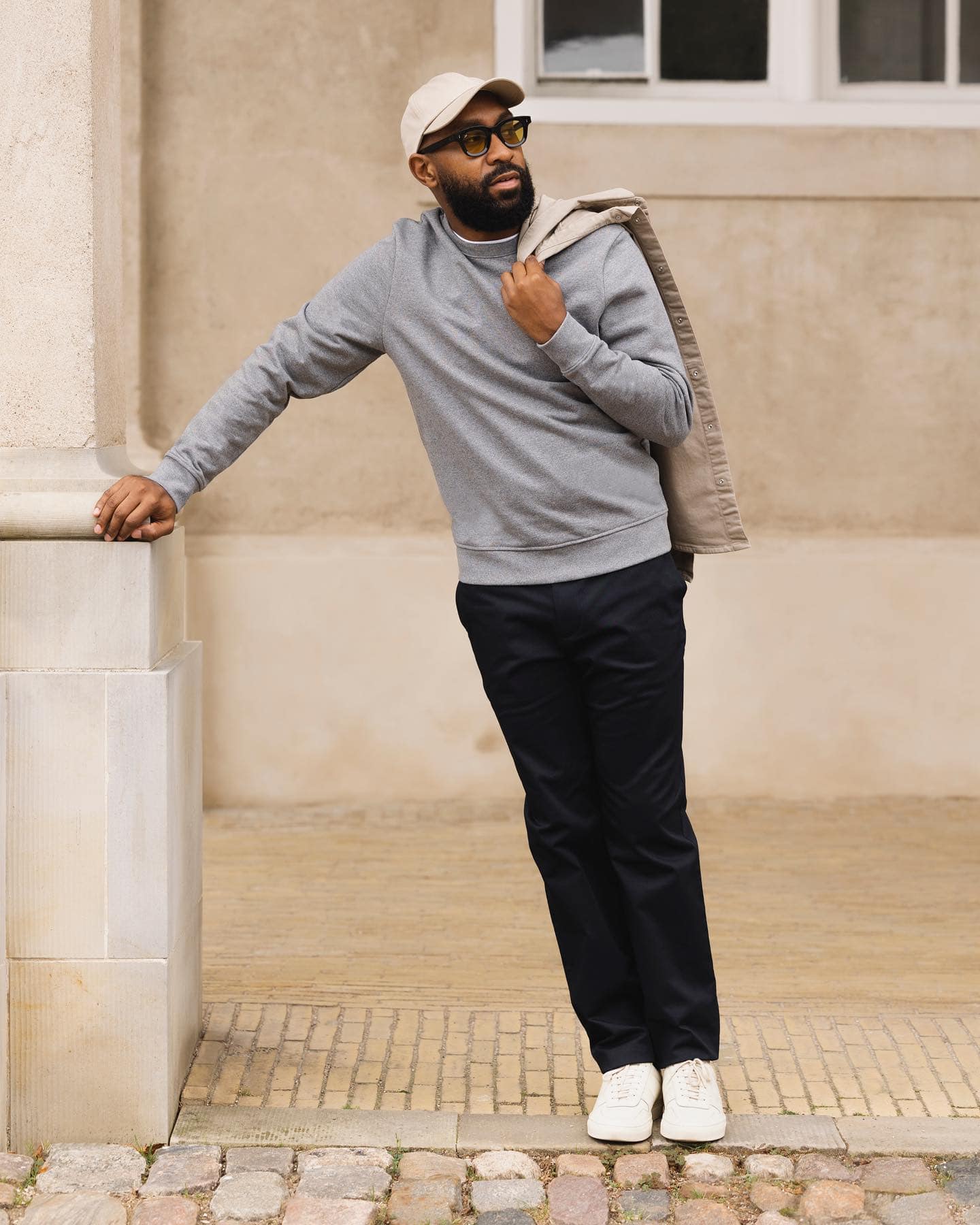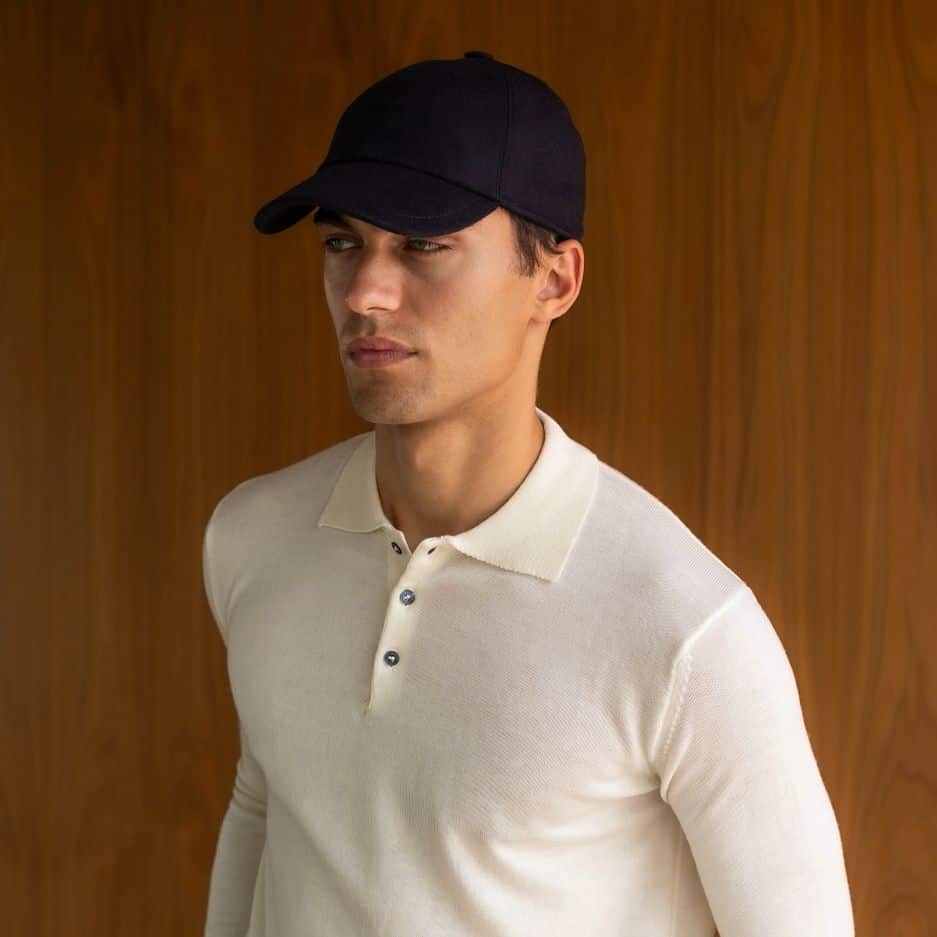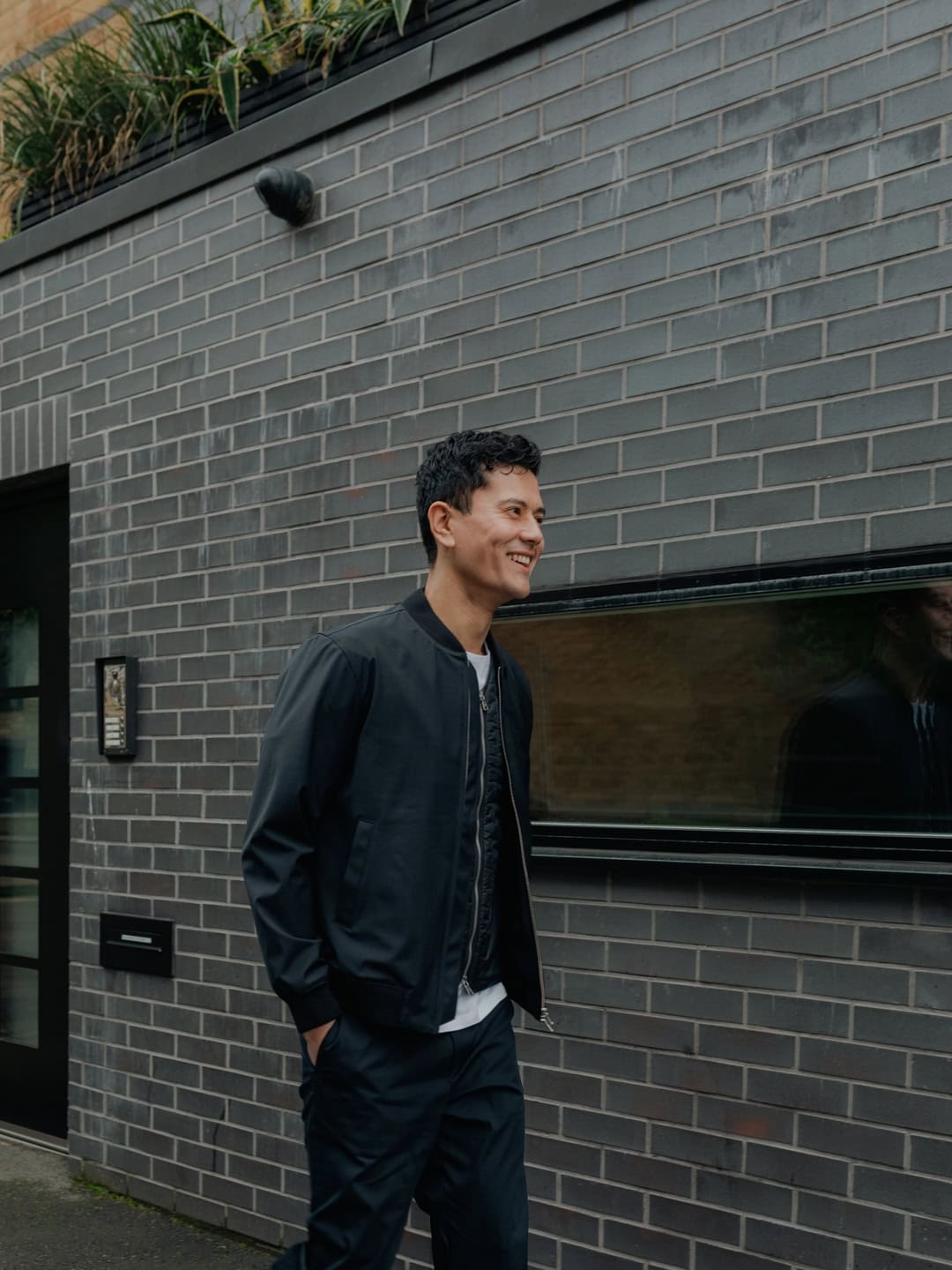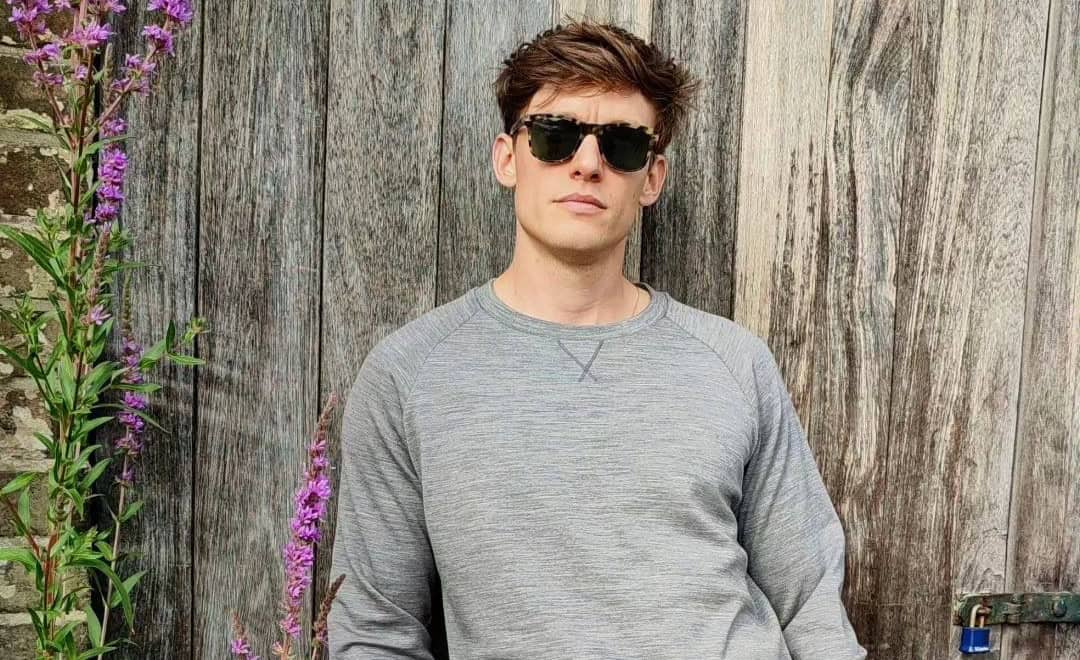In the world of menswear, where flamboyance and maximalism have their moments in the spotlight, minimalist style emerges as the epitome of timeless elegance and understated sophistication.
This article delves into the minimalist aesthetic, unraveling its history, key components, and how it has seamlessly woven its way into the fabric of men’s fashion.
By eschewing unnecessary adornments in favor of quality materials and precision in craftsmanship, minimalist fashion for men advocates for a less-is-more approach that is both chic and sustainable.
Through a lens of refinement and simplicity, we explore the nuanced realm of minimalist fashion, a style that champions functionality and versatility, promoting a wardrobe that transcends seasonal trends for lasting relevance.
Here, the focus is not just on the elimination of excess, but also on the cultivation of an intentional wardrobe that speaks volumes through its subtlety and attention to detail, with a true understanding of what minimalist style really means.

What Is Minimalist Style?
Minimalism in men’s fashion is characterized by a stark simplicity, clean lines, and a monochromatic palette that would make even the most ardent color-phobe weak at the knees.
It’s the sartorial equivalent of a haiku – brief, yet profound, eschewing unnecessary adornments in favor of quality materials and precision in craftsmanship that would make a Swiss watchmaker envious.
The minimalist aesthetic champions functionality and versatility, promoting a wardrobe that transcends seasonal trends and remains as timeless as a Paul Newman smirk in Cat on a Hot Tin Roof. It’s a style that whispers, rather than shouts, letting the man beneath the clothes do the talking.

The Evolution of Minimalist Style
The Origins in Post-War Fashion
Like a phoenix rising from the ashes of World War II, the minimalist aesthetic found its roots in the austerity of the post-war era.
With rationing still in effect and frivolity frowned upon, designers played a pivotal role in introducing a new era of simplicity and elegance to men’s fashion that would make even the most hardened soldier want to swap his fatigues for a well-cut suit.
Minimalism began as an art movement, emerging from the Bauhaus tradition, founded in the aftermath of World War I. The Bauhaus idea of melding form and function morphed in the ensuing decades into the minimalist fashion idea of less is more.
The 1960s Mod Influence
The 1960s heralded the rise of the Mod movement, a subculture that embraced minimalism with the same fervor as they did their Vespas. Centered in swinging London, the Mod aesthetic was all about sharp, tailored suits, slim silhouettes, and a monochromatic color scheme that made black and white look positively psychedelic.
Designers like John Stephen, the undisputed king of Carnaby Street, were instrumental in popularizing the sleek, streamlined looks that defined this era.
Japanese Minimalism in the 1980s
The 1980s introduced the western world to Japanese minimalism, with designers like Rei Kawakubo of Comme des Garçons and Yohji Yamamoto leading the charge. Kawakubo, in particular, was known for her singular color focus, although late in the decade she began to introduce more hues.
But it was Issey Miyake who truly stood out, with his innovative approach to fabric and design that emphasized simplicity, texture, and fluidity, adding a new dimension to minimalist fashion and merging traditional Japanese aesthetics with contemporary design principles.
In this way, he brought minimalism full circle, linking back to the origins of the movement in art and architecture. He became very much well-known for a new style of pleating, after a long study of how dancers moved and their clothing supported them.
The Minimalist Revolution of the 1990s
The 1990s witnessed a minimalist revolution that made even the most flamboyant looks of the ’80s seem positively restrained.
Designers like Helmut Lang, Jil Sander, and Calvin Klein were at the forefront, with their clean lines, unadorned aesthetics, and a focus on the power of simplicity and sensuality that played a crucial role in cementing minimalism’s place in the fashion landscape.
Lang, in particular, pushed the envelope in terms of influencing fashion, launching at famous shows like Paris revisitations of older styles and making them new again. He became well-known for his line of denim, as did Calvin Klein.
Minimalist Aesthetic in the Digital Age
In the digital age, minimalism has taken on a new meaning, adapting to the challenges and opportunities presented by technology and social media.
The focus on sustainability and ethical production has become increasingly important, with brands like Everlane and Uniqlo leading the way in offering high-quality, minimalist clothing that emphasizes durability and timeless style, making fast fashion seem as dated as a flip phone.

Key Components of Minimalist Style for Men
Ah, minimalism. The art of stripping away the excess, of distilling your style down to its purest, most essential form. It’s a philosophy, a way of life, and damn if it doesn’t look good when done right. But what exactly makes up the minimalist aesthetic? Let’s break it down, piece by piece.
The Monochromatic Core: A Symphony in Black, White, and Grey
At the heart of any minimalist wardrobe lies a foundation of monochromatic hues – black, white, and every shade of gray in between. These colors are the building blocks of the minimalist look, the canvas upon which the rest of your outfit is painted.
Think crisp white tees from brands like Uniqlo and Everlane, sleek black trousers from
Streamlined Silhouettes: The Power of Simplicity
Minimalism is all about clean lines and streamlined silhouettes. It’s about letting the cut and quality of the garment speak for itself, without any fussy details or extraneous embellishments.
Look for clothing with a slim, tailored fit – think skinny jeans from Topman, fitted tees from ASOS, and crisp button-downs from COS. Avoid anything too baggy or oversized, as this can disrupt the clean, uncluttered aesthetic you’re going for.
And don’t be afraid to invest in a few key pieces that really nail the minimalist vibe. A perfectly cut blazer from Suitsupply, a pair of sleek chelsea boots from Meermin, a cashmere turtleneck from Uniqlo that feels like a warm hug – these are the items that will elevate your minimalist look from basic to next-level.
Subtle Textures: A Whisper, Not a Shout
Just because you’re keeping things simple doesn’t mean that your outfit has to be boring. One of the keys to nailing the minimalist aesthetic is to incorporate subtle textures that add depth and interest to your look.
Think a chunky knit sweater from J. Crew paired with smooth faux leather pants from
Accessorize with Intention: Less Is More
When it comes to accessories, the minimalist mantra is “less is more.” You want to choose pieces that complement your outfit without overwhelming it, that add a touch of polish without veering into flashy territory.
A simple leather watch from Timex, a sleek silver bracelet from Skagen, a pair of understated stud earrings from Mejuri – these are the types of accessories that work well with a minimalist aesthetic. Avoid anything too trendy or attention-grabbing, and instead opt for timeless pieces that will stand the test of time.
Quality Over Quantity: Invest in the Best (Within Your Budget)
Perhaps the most important principle of minimalist fashion is the idea of quality over quantity. When you’re working with a streamlined wardrobe, every piece counts, so it’s important to invest in garments that are well-made and built to last.
Look for clothing crafted from high-quality materials like 100% cotton from Uniqlo Supima, merino wool from Banana Republic, and premium denim from Mott & Bow. Choose pieces from brands known for their attention to detail and commitment to craftsmanship, like Everlane,
And don’t be afraid to spend a little more on items that will stand the test of time – a perfectly tailored suit from SuitSupply, a buttery-soft leather jacket from The Kooples, a pair of handcrafted shoes from Beckett Simonon.
Remember, the goal of minimalism is not to have as few clothes as possible, but to have a carefully curated selection of pieces that you truly love and that make you feel your best. It’s about investing in quality over quantity, and creating a wardrobe that is as functional as it is stylish – all while staying within your budget.

Minimalist Hairstyles & Grooming Trends
Minimalist grooming and hairstyles reflect the overarching principles of minimalism: simplicity, functionality, and a timeless appeal. These styles are characterized by their ease of maintenance, clean lines, and the ability to complement a wide range of looks and occasions, from the boardroom to the barroom.
Men’s Minimalist Hairstyles
The Classic Crew Cut
The crew cut is a quintessential minimalist hairstyle that stands the test of time. Its short length is easy to manage and exudes a clean, neat appearance, particularly versatile and suitable for everything from a job interview to a night out on the town.
The crew cut’s simplicity allows it to effortlessly complement the minimalist wardrobe, ensuring that the focus remains on the overall ensemble rather than a single standout feature.
The Textured Crop
For those who want to add a bit of personality to their minimalist look, the textured crop is a modern adaptation that fits well within the minimalist aesthetic.
With its slightly longer top and added texture, paired with shorter sides, this style offers a bit more versatility and personality while maintaining the minimalist ethos of simplicity and ease of care.
The Slicked-Back Look
For the man who wants to channel his inner Cary Grant, the slicked-back look provides a refined and sophisticated option that aligns with minimalist fashion. This style keeps the hair neat and controlled, offering a classic appeal that transcends trends and is particularly effective for formal occasions where a polished appearance is paramount.
Minimalist Facial Hair
Although minimalist grooming doesn’t necessarily mean being clean-shaven at all times, a well-maintained beard can complement the minimalist aesthetic if kept neat and tidy.
The key is to ensure that the beard is well-groomed, with clean lines and an even length that enhances rather than detracts from the overall look, highlighting the importance of grooming as an integral component of the minimalist style.
Minimalist Grooming Products
When it comes to products, the minimalist approach favors quality over quantity. A few high-quality grooming products are chosen for their effectiveness and versatility.
Examples are a good hair pomade or clay for styling and a premium razor for a close shave, serving multiple purposes and keeping the grooming routine streamlined and efficient.

Men’s Minimalist Style Icons
Steve McQueen
The undisputed king of cool, Steve McQueen had an effortless approach to fashion – favoring basic, well-made pieces over transient trends – that has made him a lasting symbol of understated elegance.
His signature looks, including crisp white T-shirts paired with classic denim or tailored suits worn with an air of nonchalance, perfectly capture the minimalist spirit, cementing his status as a minimalist icon.
George Clooney
With his timeless style and sophisticated charm, George Clooney is synonymous with minimalist cool.
His preference for classic silhouettes, solid colors, and an overall uncluttered aesthetic aligns perfectly with the minimalist mantra, proving that classic choices never fall out of favor and exemplifying how minimalist style can exude confidence and maturity.
Pharrell Williams
Though known for his bold fashion choices, Pharrell Williams also embodies a minimalist aesthetic through his selective use of monochromatic outfits and streamlined silhouettes.
His knack for pairing simple pieces with one statement item, whether it be a hat or a pair of sneakers, illustrates a key minimalist principle: let a single element shine, teaching that minimalism doesn’t have to be devoid of personality.

Minimalist Outfits for Men: How to Wear the Minimalist Aesthetic
Creating a minimalist outfit is all about combining key pieces with a focus on fit, color, and simplicity. Start with a base of neutral tones, adding layers like a well-fitted blazer or a sleek leather jacket. Opt for quality over quantity, selecting items that offer versatility and longevity – because in the world of minimalist fashion, less is always more.
Final Verdict
Embracing minimalist style is not just a fashion statement; it is a commitment to intentional living and timeless elegance.
As we’ve explored the depths of minimalist fashion for men, it becomes clear that this aesthetic offers a pathway to a refined and sustainable wardrobe, proving that true style is found not in abundance, but in the careful selection and appreciation of simplicity.
So go forth, gentlemen, and embrace the minimalist way – strip your closet down to the bare essentials, invest in quality over quantity, and let your personal style shine through in the simplicity of your sartorial choices. The rewards – a timeless, effortless elegance that will never go out of style – are well worth the journey.
FAQ
-
-
Minimalist style emphasizes simplicity, functionality, and a focus on quality over quantity. It’s characterized by clean lines, neutral color palettes, and a reduction of unnecessary embellishments, promoting timeless and versatile wardrobe pieces that will make you look effortlessly cool.
-
Some of the best minimalist fashion brands for men include COS, Uniqlo, Everlane, L’Estrange London, and Common Projects – brands that are known for their quality materials, simple designs, and timeless pieces that embody the minimalist aesthetic and make getting dressed a breeze.
-
Minimalists typically favor neutral colors such as black, white, gray, navy, and beige – shades that are favored for their versatility, ease of mixing and matching, and their ability to create a cohesive wardrobe that will never go out of style.
-
The opposite of minimalist style is maximalist style – a flamboyant approach that embraces excess, bold patterns, bright colors, and a mix of textures and embellishments. If minimalism is a whisper, maximalism is a shout, making a statement through abundance and diversity in fashion.
-
Luxury minimalism combines the principles of minimalist design – simplicity and focus on essentials – with high-quality materials and craftsmanship. It emphasizes understated elegance, premium fabrics, and refined details, offering a sophisticated and timeless approach to luxury fashion that will make you feel like a million bucks (without spending a million bucks).
-
Read the original article here
